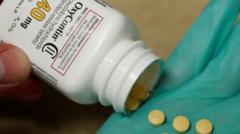McKinsey & Company has agreed to a $650 million settlement to resolve accusations from the US Department of Justice regarding its consultancy role that contributed to the opioid crisis, particularly with Purdue Pharma.
McKinsey to Pay $650 Million to Resolve Criminal Charges in Opioid Crisis

McKinsey to Pay $650 Million to Resolve Criminal Charges in Opioid Crisis
Consulting giant McKinsey has reached a settlement over its involvement in misbranding prescription drugs, leading to the opioid epidemic.
In an agreement to resolve allegations of criminal conspiracy, McKinsey acknowledges its part in the opioid epidemic and seeks to reform while addressing the ongoing impact of drug addiction in the US.
McKinsey, a prominent consulting firm, has settled on a substantial payment of $650 million to resolve criminal charges surrounding its consultancy work that allegedly exacerbated the US opioid crisis. According to the US Department of Justice, McKinsey “knowingly and intentionally” conspired with Purdue Pharma, the maker of OxyContin, to misbrand prescription drugs, leading to significant ramifications for public health.
The settlement comes on the heels of previous lawsuits against McKinsey, where it had already paid nearly $1 billion concerning its advisory relationship with Purdue and other pharmaceutical corporations. The latest charges against McKinsey relate specifically to how it allegedly aided Purdue Pharma in tactics that might have falsely promoted the sales of OxyContin, a popular painkiller. The Department of Justice highlighted that they had provided guidance on "turbocharging" OxyContin’s sales, despite its growing link to addiction and health crises.
In a public statement, McKinsey acknowledged its previous failure to fully comprehend the potential damage that opioids could inflict on society. Martin Elling, a former senior partner at the firm, is also expected to plead guilty to obstruction by destroying records pertinent to the case. As part of a deferred prosecution agreement, McKinsey will temporarily halt prosecution in exchange for compliance with stipulated reforms.
Purdue Pharma itself has faced severe repercussions, admitting to its culpability in the crisis with an $8.3 billion settlement in 2020 related to its marketing practices. The introduction of OxyContin in the mid-1990s marked a significant turning point, with data showing that OxyContin commanded 68% of oxycodone sales by 2002, contributing to increasing addiction rates. Other studies indicated that the drugs OxyContin and hydrocodone had the highest rates of abuse among prescribed opioids by 2004.
The opioid crisis has led to a dramatic surge in addiction and overdose deaths, affecting nearly 100,000 people annually in the US, although recent figures show a declining trend in overdose deaths. With the settlement and commitment to reform, both McKinsey and Purdue Pharma are under pressure to rectify past wrongdoings while acknowledging the ongoing challenges posed by opioid addiction and its impact on communities across the nation.
McKinsey, a prominent consulting firm, has settled on a substantial payment of $650 million to resolve criminal charges surrounding its consultancy work that allegedly exacerbated the US opioid crisis. According to the US Department of Justice, McKinsey “knowingly and intentionally” conspired with Purdue Pharma, the maker of OxyContin, to misbrand prescription drugs, leading to significant ramifications for public health.
The settlement comes on the heels of previous lawsuits against McKinsey, where it had already paid nearly $1 billion concerning its advisory relationship with Purdue and other pharmaceutical corporations. The latest charges against McKinsey relate specifically to how it allegedly aided Purdue Pharma in tactics that might have falsely promoted the sales of OxyContin, a popular painkiller. The Department of Justice highlighted that they had provided guidance on "turbocharging" OxyContin’s sales, despite its growing link to addiction and health crises.
In a public statement, McKinsey acknowledged its previous failure to fully comprehend the potential damage that opioids could inflict on society. Martin Elling, a former senior partner at the firm, is also expected to plead guilty to obstruction by destroying records pertinent to the case. As part of a deferred prosecution agreement, McKinsey will temporarily halt prosecution in exchange for compliance with stipulated reforms.
Purdue Pharma itself has faced severe repercussions, admitting to its culpability in the crisis with an $8.3 billion settlement in 2020 related to its marketing practices. The introduction of OxyContin in the mid-1990s marked a significant turning point, with data showing that OxyContin commanded 68% of oxycodone sales by 2002, contributing to increasing addiction rates. Other studies indicated that the drugs OxyContin and hydrocodone had the highest rates of abuse among prescribed opioids by 2004.
The opioid crisis has led to a dramatic surge in addiction and overdose deaths, affecting nearly 100,000 people annually in the US, although recent figures show a declining trend in overdose deaths. With the settlement and commitment to reform, both McKinsey and Purdue Pharma are under pressure to rectify past wrongdoings while acknowledging the ongoing challenges posed by opioid addiction and its impact on communities across the nation.
















